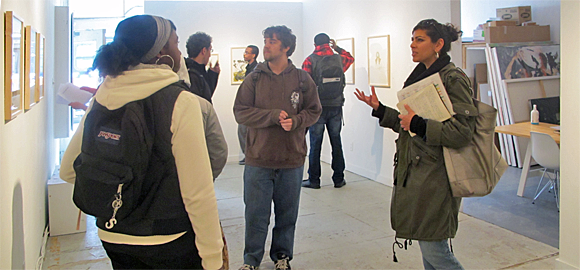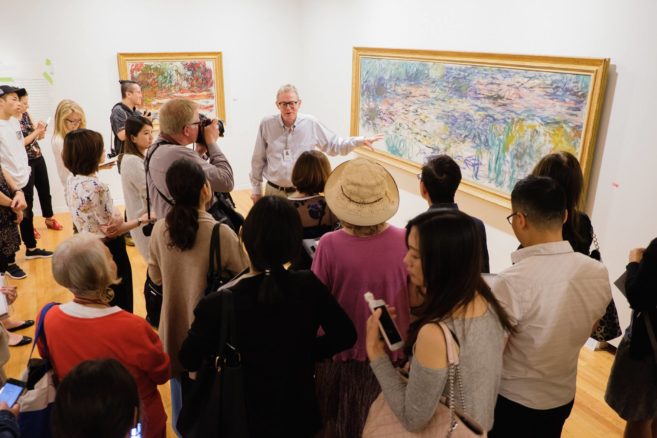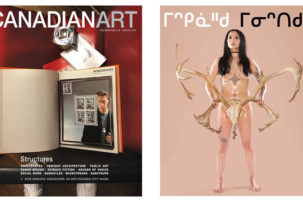Maybe reclusive types can have successful careers, but for most of us, socializing, mixing, schmoozing, whatever you want to call it, is a necessity. Done right, networking can really help you create, promote and sell your art.
Your colleagues can be great sources of inspiration and information. Form a group and get together to share and critique your work. Ask successful artists for advice. Many of the relationships you’ll rely upon as a professional will be formed in school. Outside of the classroom, find an industry association. Not only will you meet other artists, but also you’ll likely find opportunities to attend conferences, workshops and luncheons. Always have your business card—which, of course, includes the URL to your website—ready to hand out. Also, expand your contact list by connecting with an artist-run centre: you never know, your work may interest the person curating its next show.
Use social networks such as Facebook to promote your shows and projects, find out about upcoming events, get access to equipment and find studio space.
“Making friends and contacts in the field will get you further through word of mouth than hitting the pavement,” says comic illustrator and story boarder Jose Holder. “Because artistic communities are so small, jobs are passed along from friend to friends, from contact to contact. You develop this nice camaraderie. Furthermore, meeting with people who work in your field will give a you a better sense of rates, of job expectations, of the demands of working in difference fields, and what you will be expected to know on the job.”
To find out more about a career or field that interests you, ask to meet someone for an “information interview”. People in the cultural sector are pretty generous with their time, and will usually share their insights and experiences as long as they know that the meeting will be kept short (15-20 minutes, tops) and won’t end with them being hit up for a job. Always follow up with a thank you card. These days, a handwritten note sent by mail really gets noticed.
If you luck out and find yourself at an event with someone who is hiring, make a point of starting a conversation. Otherwise, you can introduce yourself by phone: just say you heard they’re hiring and briefly go over your skills. Even if you don’t get the job this time, you may make an important contact. Keep in touch with all of them. “As you network,” says Tom Kouri, president of High-Touch Communications Inc., “build up a list of contacts. Now and again, send them e-mails with news abut new projects you are working on along with links to samples on your website.” Email is also a good way to get repeat business. Send a note when a job is finished to make sure the client is happy and to say you enjoyed the project. Follow up occasionally to remind them of your collaboration and mention that you hope to work together again.
Special thanks to YES for providing content from the book “Business Skills for Creative Souls: The Montreal Artist’s Handbook” Iris Unger, Ed. Published by YES Montreal 2004

 TDSB students visit a gallery on Toronto's Queen Street West, as part of the Canadian Art Foundation School Hop.
TDSB students visit a gallery on Toronto's Queen Street West, as part of the Canadian Art Foundation School Hop.







